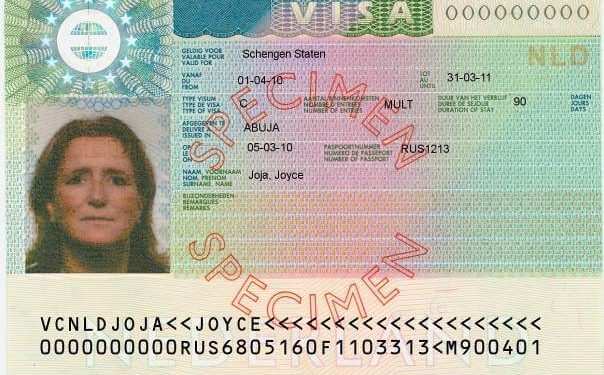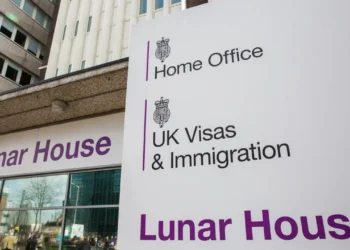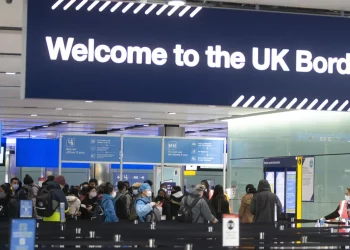Embarking on international travel is an exciting prospect that often begins with a crucial step: the visa interview. Whether you’re seeking a tourist, business, student, or work visa, the interview process can be a pivotal factor in determining the outcome of your application. In this comprehensive guide, we delve into the strategies, insights, and key tips that can help you confidently navigate any visa interview and increase your chances of success.
First, you must understand the importance of the Visa Interview. The visa interview is not just a formality; it’s an opportunity for immigration officials to assess your eligibility, intentions, and authenticity. By understanding the significance of the interview and approaching it with the right mindset, you can effectively present yourself as a genuine and qualified applicant.
Visa interview is essentially the same thing for all countries. The consular officers are always looking to achieve the same purpose. This purpose is to stop the wrong people from receiving entry clearance to the country they represent. The wrong people are those who do not meet their credibility criteria.
Secondly, You Must Understand the Strategies for Success. Understanding the visa interview means understanding the best strategies for making it a success. When you master these strategies, then you can “crack the code” of any visa interview, literally speaking.
These strategies include the following:
Get Prepared: Adequate preparation is the cornerstone of a successful visa interview. Begin by thoroughly researching the visa requirements, application process, and any specific documents needed. These three things may well depend on the particular country you are visiting.
Familiarize yourself with the three things as it applies to that country. You can find well detailed information on the websites of each country. They always provide guidance and explicit guidelines sufficient to give you clear understanding.
Then organize your supporting documents meticulously. This includes your passport, visa application form, invitation letters, financial statements, and any other required paperwork. A well-organized collection of documents demonstrates your attention to detail and preparedness.
Tell your story convincingly. Articulate your intentions clearly. During the interview, clearly convey your intentions for traveling to the destination country. Whether you’re planning a vacation, pursuing education, or engaging in business activities, articulate your reasons with confidence. Provide specific details about your itinerary, duration of stay, and any relevant plans.
Emphasize the benefits of your travel, such as cultural exchange, academic growth, or business networking. Demonstrating a well-thought-out purpose for your trip showcases your commitment and motivation, leaving a positive impression on the interviewer.
You must also understand the purpose of your planned visit and be ready to explain it clearly and concisely to the visa interviewer. You know your story and only you can tell that story, but you must tell it convincingly.
Show strong financial standing and provide succinct evidence of it. The ability to financially support yourself during your stay is a critical aspect of any visa application. Present your financial documents, such as bank statements, pay slips, or sponsorship letters, to prove your capacity to cover your expenses. Ensure that these documents are accurate, up-to-date, and transparent.
Clearly explain your budgeting plans and demonstrate that you have sufficient funds to sustain yourself without becoming a burden on public resources. This reassures the immigration officials that you’re responsible and well-prepared for your journey.
Show strong ties to your home country. Every visa interviewer is trained to assume that you are relocating abroad and will not likely depart after the claimed visit. Their mindset is that you are using the visit as a cover to emigrate to their country. So, they are there to stop you and they will be happy to do just that.
Therefore, be prepared to address concerns about your potential overstay by highlighting your strong ties to your home country. Present evidence of your connections, such as employment, family, property ownership, or educational pursuits. These ties demonstrate your commitment to returning home after your visit.
Discuss your responsibilities, commitments, and future plans that await you back home. By establishing your connections and obligations, you alleviate concerns about your intentions to immigrate permanently. This is one major concern and of the greatest interest to every consular officer.
Communicating effectively during the interview is very vital. Communication is a fundamental skill during a visa interview. You need the skill if you don’t already have it. You can acquire it in a short time by practicing answering the likely question you will be asked even before attending the interview.
Practice articulating your responses clearly, coherently, and confidently. You can find these likely questions online through search engines, such as Google or Bing. Then, during the interview, try and listen attentively to the questions before responding.
In your response, try to provide well-thought-out answers. Avoid vague or overly complex language and use examples to illustrate your points. It will serve your benefit to provide details that will highlight all your credibility even if the question is not categorically about the. Find any connection in the question and bring in these details that works in your favour.
Engage in a respectful and attentive conversation with the interviewer. Maintain eye contact and display active listening skills to demonstrate your professionalism and willingness to engage.
Avoid arrogance but maintain composure and positivity. The interviewer will be paying close attention to your demeanour. Try to own the room, by being confident and friendly. Do this carefully, as overdoing it could be viewed as arrogance. So, maintain moderation.
Approach the interview with a calm and composed demeanour. Stay positive and confident throughout the process, even if you encounter challenging questions. If you don’t understand a question, don’t hesitate to ask for clarification.
Prepare for the possibility of follow-up questions by thinking ahead about potential inquiries related to your application. By staying collected and composed, you exhibit your ability to handle stress and unexpected situations effectively.
In conclusion, mastering the art of passing any visa interview requires thorough preparation, effective communication, and a genuine demeanour. By applying the strategies outlined in this comprehensive guide, you can confidently navigate the interview process and increase your chances of securing the visa you seek.
Remember, the interview is an opportunity to demonstrate your authenticity, intentions, and readiness to abide by visa regulations. With dedication and poise, you can embark on your international journey with the assurance of a well-prepared and successful visa application.












